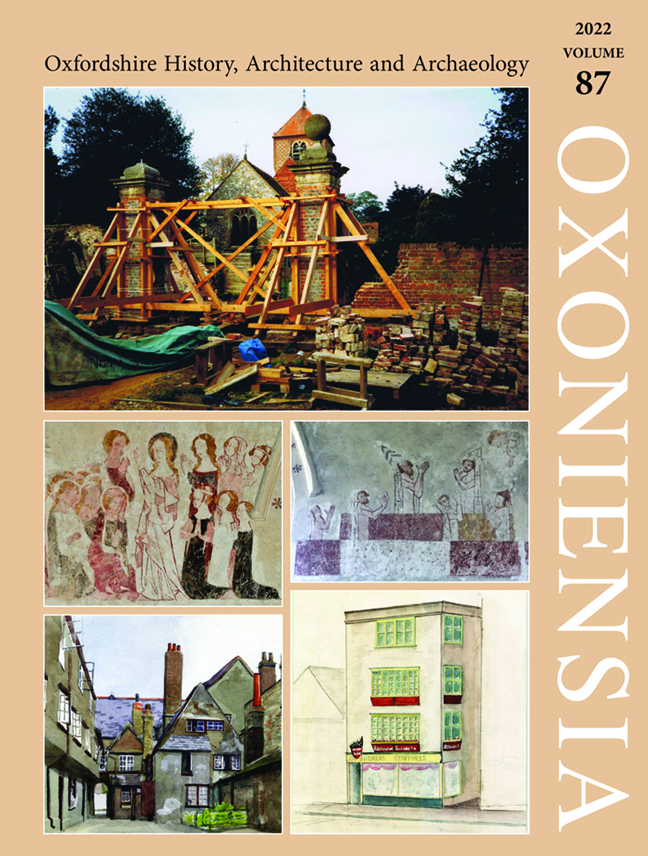The Merrys of Merriscourt: An Oxfordshire Surname Explored
Published online by Cambridge University Press: 17 February 2024
Summary
Merriscourt, in the west Oxfordshire parish of Lyneham, appears in documents as ‘Merry Court’ in 1661, ‘Merescourt alias Mericourte’ in 1555, and ‘Merycourte’ in 1524. In 1954 Margaret Gelling observed that ‘it is probably named from the family called le Mire 1244, 1302–3, le Myre 1278–9, le Mirye 1310–11 (1336), le Mirie 1346, Murie 1361, Murye 1361, Merie 1376, Myry 1401–2, Mury 1428, who held land in Lyneham’. Recent research by Mark Page has dispelled any lingering doubt surrounding this origin, showing that Merriscourt Farm does indeed represent the manorial site of the half-share of Lyneham manor held from before 1235 to 1413 by successive members of the Merry family, all called John.
The earliest John Merry (called le Mire or le Myre in 1244, shortly after his death) was recorded as John medicus holding half of Lyneham manor in the 1230s–40s, and probably the same individual was recorded as John le Mire ‘of Norton’ c.1243, when he exchanged lands in Little Rollright for a meadow in Ascott-under-Wychwood. His parish of residence was evidently Chipping Norton (then including Over Norton and Cold Norton), where John medicus ‘of Norton’ was documented in 1225, and where, as John medicus or John le Mire, he witnessed deeds now in the archive of Brasenose College, Oxford. Other potential family members also appear in the same set of thirteenth-century Chipping Norton deeds, including David, Henry, and Richard medicus, and Robert, variously called medicus, le Mire, or la Myre.
The English surname Merry, for which medieval early bearers spelled le Mirie, Merye, Myrie, Mury, and Myry are given in a recent surnames dictionary, is generally thought to have originated either as a nickname derived from Middle English merie, mirie, murie ‘merry, pleasant’, or as a relationship name from the female personal name Mary. However, the evidence presented above suggests a third etymology which appears so far to have escaped attention. The medieval Latin noun medicus may be translated as ‘medic, doctor, physician’, indicating that the Middle English word from which the west Oxfordshire family derived their surname was not mirie ‘merry’, but miri ‘physician’, itself derived from Old French mire or mirie with the same meaning.
- Type
- Chapter
- Information
- Oxoniensia , pp. 467 - 468Publisher: Boydell & BrewerPrint publication year: 2022

